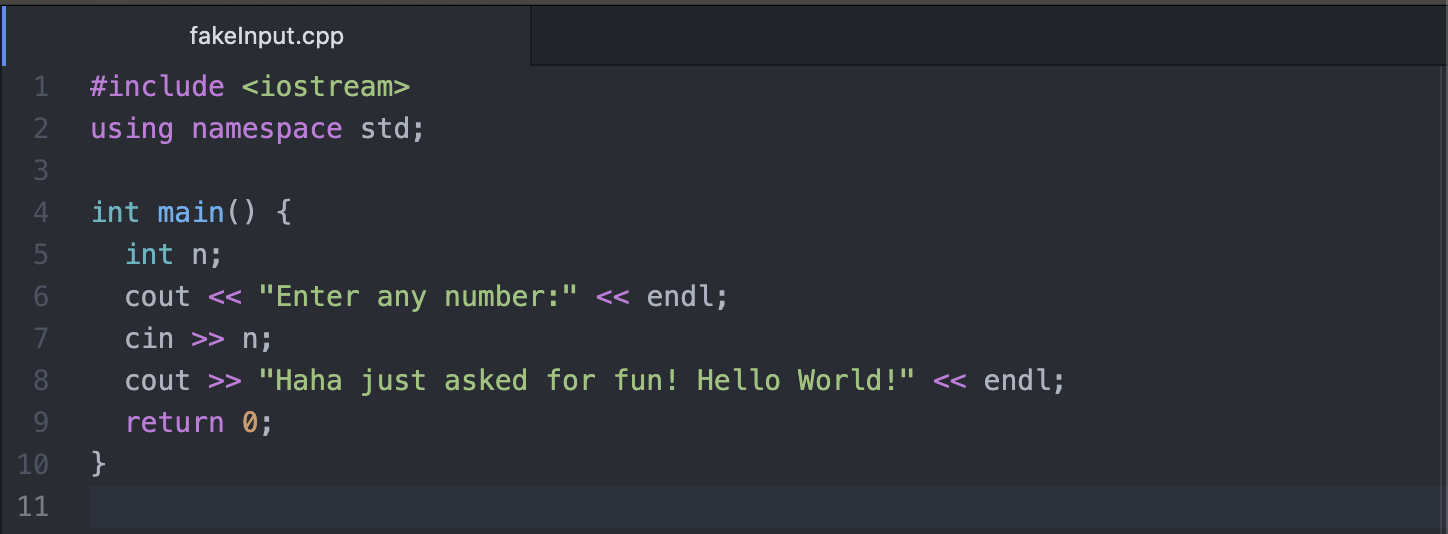[Python] #4 Python Class
This is a self note while taking the online course from: LinkedIn Learning: Learning Python by Joe Marini LinkedIn Learning: Python Essential Training by Bill Weinman
1. Class and class function
- __init__(self, args…): constructor
- self keyword -> ‘this’ keyword in C/Java
- __str__(self): provides string representation, allowing simply using print() method
- object variables: bounded to the object(NOT CLASS) ==> ENCAPSULATION
class Animal:
# class variables
x = [1, 2, 3]
# constructor
def __init__(self, **kwargs):
self._type = kwargs['type'] if 'type' in kwargs else 'Living thing'
self._name = kwargs['name'] if 'name' in kwargs else 'No Name'
self._sound = kwargs['sound'] if 'sound' in kwargs else '(Mute)'
# provides string representation --> allows to simply use print() function
def __str__(self):
return f'Type: {self.type()}\tName: {self.name()}\tSound: {self.sound()}'
# setter and getter
def type(self, t=None):
if t:
self._type = t
return self._type
def name(self, n=None):
if n:
self._name = n
return self._name
def sound(self, s=None):
if s:
self._sound = s
return self._sound
def print_animal(o):
if not isinstance(o, Animal):
raise TypeError('print_animal(): requires an Animal')
print(f'Type: {o.type()}\tName: {o.name()}\tSound: {o.sound()}')
def main():
a1 = Animal(type='Human', name='David', sound='Hu---man')
print_animal(a1)
print(a1.sound('Hello!'))
print_animal(a1)
a2 = Animal(type='Dog', name='Moly', sound='Woof-woof')
print_animal(a2)
a3 = Animal()
print_animal(a3)
print('using print function', a1)
if __name__ == '__main__':
main()
(Result)
Type: Human Name: David Sound: Hu---man
Hello!
Type: Human Name: David Sound: Hello!
Type: Dog Name: Moly Sound: Woof-woof
Type: Living thing Name: No Name Sound: (Mute)
using print function Type: Human Name: David Sound: Hello!
2. Inheritance
- “class childClass(ParentClass)” => inherits parent class
- super().__init__(args…): calls the parent’s class constructor
- can extend built-in classes (ex. __str__)
class Animal:
# no default value for child classes
def __init__(self, **kwargs):
if 'type' in kwargs:
self._type = kwargs['type']
if 'name' in kwargs:
self._name = kwargs['name']
if 'sound' in kwargs:
self._sound = kwargs['sound']
def type(self, t=None):
if t:
self._type = t
try:
return self._type
except AttributeError:
return None
def name(self, n=None):
if n:
self._name = n
try:
return self._name
except AttributeError:
return None
def sound(self, s=None):
if s:
self._sound = s
try:
return self._sound
except AttributeError:
return None
class Duck(Animal): # Duck inherits Animal class
def __init__(self, **kwargs):
self._type = 'duck'
if 'type' in kwargs:
del kwargs['type']
super().__init__(**kwargs)
def swim(self, s): # Own function
print(f'{self.name()} is swimming in {s}')
class Dog(Animal): # Dog inherits Animal class
def __init__(self, **kwargs):
self._type = 'dog'
if 'type' in kwargs:
del kwargs['type']
super().__init__(**kwargs)
def print_animal(o):
if not isinstance(o, Animal):
raise TypeError('print_animal(): requires an Animal')
print(f'Type: {o.type()}\tName: {o.name()}\tSound: {o.sound()}')
def main():
a0 = Duck(name='Donald', sound='Kwawk-kwawk')
a1 = Dog(name='Moly', sound='Woof-woof')
print_animal(a0)
print_animal(a1)
a0.swim('lake')
if __name__ == '__main__':
main()
(Result)
Type: duck Name: Donald Sound: Kwawk-kwawk
Type: dog Name: Moly Sound: Woof-woof
Donald is swimming in lake
3. Iterator
- Iterator is a class that provides a sequence of items used in a loop (ex. range)
- ___iter___ : identifies this object as an iterator object
- Loop uses __next__ for iteration
- yield (generator) is a simpler way than iterators but iterators are still common
# inclusinve range iterator
class inclusive_range:
def __init__(self, *args):
numargs = len(args)
self._start = 0
self._step = 1
if numargs < 1:
raise TypeError(f'expected at least 1 argument, got {numargs}')
elif numargs == 1:
self._stop = args[0]
elif numargs == 2:
(self._start, self._stop) = args
elif numargs == 3:
(self._start, self._stop, self._step) = args
else:
raise TypeError(f'expected at most 3 arguments, got {numargs}')
self._next = self._start
def __iter__(self):
return self
def __next__(self):
if self._next > self._stop:
raise StopIteration
else:
_r = self._next
self._next += self._step
return _r
def main():
for n in inclusive_range(25):
print(n, end=' ')
print()
for n in inclusive_range(2, 10, 2):
print(n, end=' ')
print()
if __name__ == '__main__':
main()
(Result)
0 1 2 3 4 5 6 7 8 9 10 11 12 13 14 15 16 17 18 19 20 21 22 23 24 25
2 4 6 8 10

